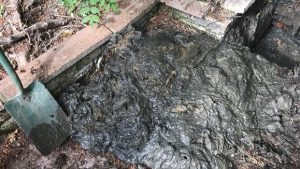Yorkshire Water has once again called for mandatory ‘do not flush’ labelling on wet wipes after research found current labelling is leaving consumers confused over how to correctly dispose of them.
The research*, released ahead of Plastic Free Beauty Day, revealed 20% of people view wet wipes as ‘essential’ and 85% of us regularly purchase at least one type of wipe.
But it’s the packaging of wipes and instructions on how to dispose of them that causes confusion, particularly in the case of toilet wipes and baby wipes, which are the most likely to be flushed. Once flushed, these wipes – even those certified as ‘fine to flush’ – do not breakdown in the sewer network and can develop into blockages, which can lead to restricted toilet use for customers, sewage escapes into properties and gardens and in some cases pollution in local watercourses.
The research indicated one in five believe even wipes without a ‘fine to flush’ label can be flushed and 38% of people said they would flush biodegradable wipes as they will dissolve or breakdown faster. Around a quarter of under 35s believe ‘biodegradable’ to mean the same as ‘fine to flush’. Biodegradable and fine to flush wipes do not breakdown in the sewer network and can cause significant issues in the sewer system.
Ben Roche, director of wastewater at Yorkshire Water, said: “Consumers are currently faced with an array of different logos and claims on packets of wet wipes, including ‘fine to flush’, ‘do not flush’ and ‘biodegradable’ labels. Those labelled ‘fine to flush’ often indicate only one wipe should be flushed at a time, but often this is not followed or understood by customers, with less than half saying the logo indicated only one wipe should be flushed at a time. Even then, these wipes generally contain plastic so do not break down in the sewer as toilet roll does.
“Clearly there needs to be a standard message across all wet wipe packaging and we are calling for mandatory ‘do not flush’ messaging to avoid the confusion consumers currently experience when buying all types of wipes.”
Water companies’ work to raise awareness of the issues wet wipes can cause in the sewer network is having an impact, with 78% of people surveyed saying they were ‘very aware’ or ‘quite aware’ of the issues wipes can cause when flushed.
Consumers responding to the survey said manufacturers of wet wipes should take responsibility for funding the development of plastic-free wipes (89%), the clean-up of the environmental impact of wipes (73%) and campaigns to encourage correct disposal (62%). Consumers also said Governments, water companies and retailers should also bear some responsibility.
Ben added: “We are also calling on the Government to extend the responsibility to manufacturers to cover cost of educating customers about correct methods of disposal, and clean-up costs resulting from incorrect disposal.
“We continue to spend millions of pounds every year to resolve blockages caused by wet wipes and sanitary items, as well as running public awareness campaigns on the correct way to dispose. We have seen some retailers begin to act on this issue, banning all plastic-containing wipes, and we would urge others to do the same.”
Yorkshire Water recently backed Fleur Anderson’s ban on plastics in wet wipes bill and responded to a government call for evidence on the issue which is available here.
*This research was commissioned by Yorkshire Water and undertaken independently by Insites Consulting. Online surveys, forums and focus groups were carried out with 625 people.




